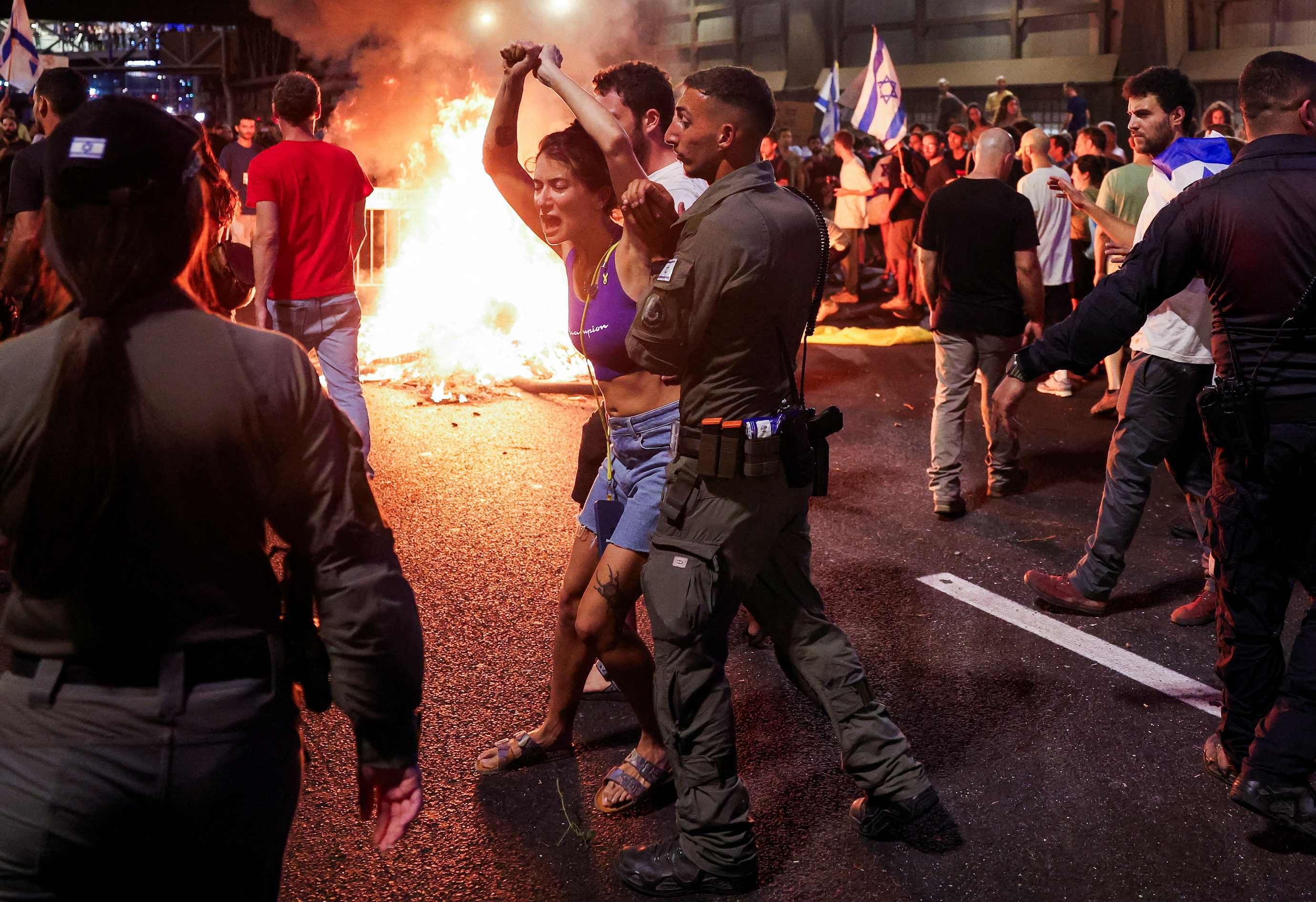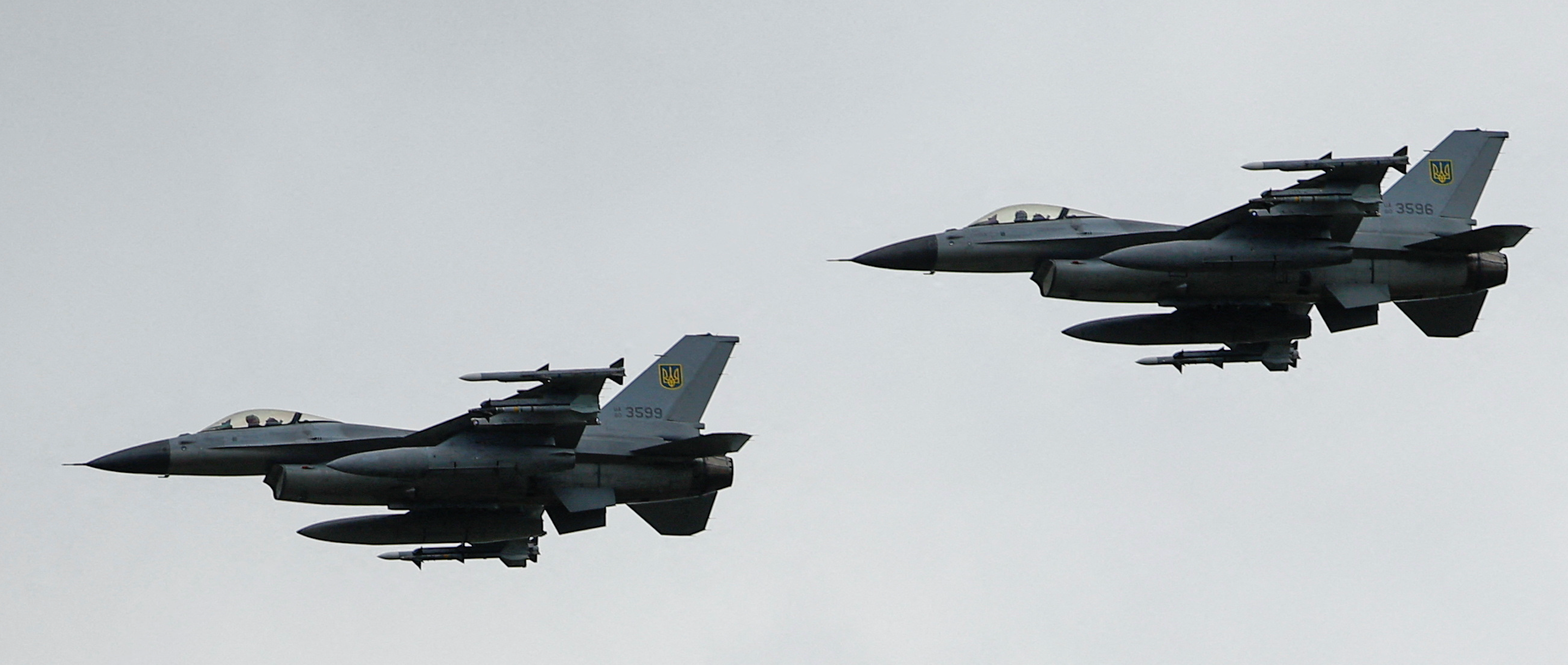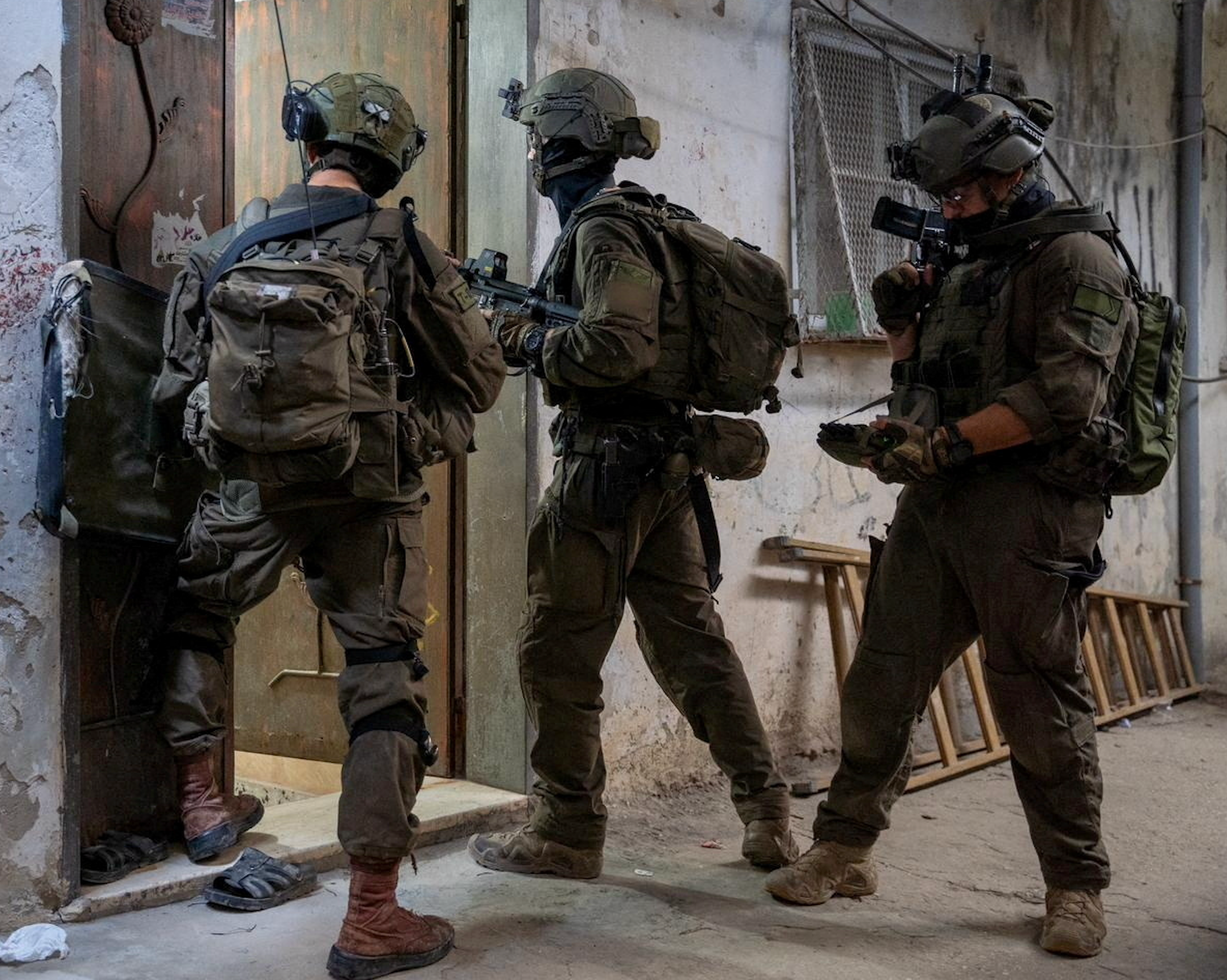
Israelis protest to demand Gaza deal after six hostages found dead
PHOTO CAPTION: A person reacts as protesters rally against the government and to show support for the hostages who were kidnapped during the deadly October 7 attack, amid the ongoing conflict in Gaza between Israel and Hamas, in Tel Aviv, Israel September 1, 2024. REUTERS/Florion Goga
By Steven Scheer
JERUSALEM (Reuters) -Israeli protesters took to the streets for a second day on Monday and the largest trade union launched a general strike to press the government to reach a deal to return hostages still held by Hamas, after six more captives were found dead in Gaza.
The strike disrupted transport and medical services in several Israeli districts and many shops and businesses were closed after the head of the Histadrut union, which represents hundreds of thousands of workers, called for a general stoppage.
The recovery of the six hostages, who were shot dead between 48-72 hours before being found by Israeli forces, according to the health ministry, triggered a wave of grief and fury in Israel, prompting at least half a million people to take to the streets in Jerusalem and Tel Aviv on Sunday.
The demonstrators are demanding Prime Minister Benjamin Netanyahu reach a ceasefire agreement with Palestinian militant group Hamas to bring the remaining hostages home.
On Monday, thousands again gathered in Tel Aviv, waving blue and white Israeli flags or holding photographs of the remaining 101 hostages aloft.
Professor Yehuda Ullmann, head of the surgery division at Rambam Hospital in Haifa, said strike action went against the grain of doctors dedicated to saving patients.
"But we are in a very, very hard situation now, we and all the country, because of the hostages. And yesterday it was maybe the hardest day," he said. "We can't stand aside and that's why we came into a strike."
Following an intervention by Finance Minister Bezalel Smotrich, Israel's Labour Court ruled the general strike must end at 2:30 p.m. (1130 GMT), saying the strike had no economic basis and was largely political. Histadrut accepted the ruling.
"We live in a country of law and respect the court's decision, therefore I instruct everyone to return to work at 2:30 p.m.," Histadrut chairman Arnon Bar-David said, a day after he described the strike as "a cry for the return of the hostages."
DEEP DIVISIONS
Some services at Ben Gurion Airport, Israel's main air transport hub, were suspended in the morning, although incoming flights were still landing while bus and light rail services in many areas were either cancelled or only partially functioning.
Workers at Israel's main commercial port Haifa and some municipalities also went on strike.
Hospitals were only partially operating and banks were not working but many private sector businesses were open. The strike was backed by several employer groups including manufacturers and the high tech sector, and many employers were allowing staff to join the strike so many services were disrupted.
The strike and street demonstrations follow months of protests by families representing some of the hostages and underscore the deep divisions that have opened up in Israel over Netanyahu's approach to securing a ceasefire deal.
Despite pressure from his own defence minister as well as senior generals and intelligence officials, Netanyahu has insisted on maintaining Israeli troops in key points of the Gaza Strip after any ceasefire.
Hamas has rejected any Israeli presence and despite the efforts of Egyptian and Qatari diplomats and repeated visits to the region by senior U.S. officials urging a deal, there has been no sign of a breakthrough in talks to halt the fighting and bring the hostages home.
Hamas militants seized 253 hostages in the Oct. 7 rampage through Israeli communities that killed 1,200 Israelis and foreigners and triggered a relentless Israeli assault that has laid waste to Gaza and killed more than 40,600 Palestinians.
(Reporting by James Mackenzie and Steven ScheerEditing by Ros Russell)









